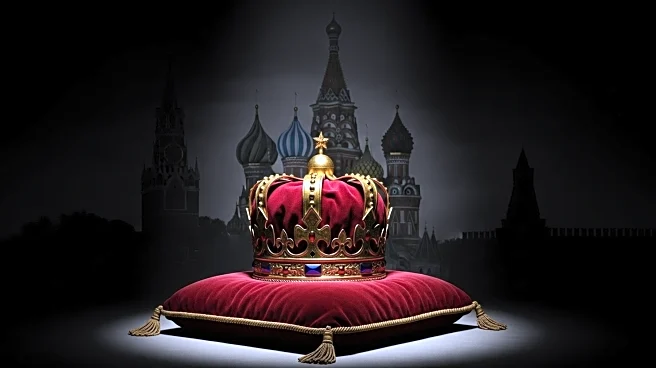What's Happening?
The film adaptation of Giuliano da Empoli's novel 'The Wizard of the Kremlin' has been released, featuring Jude Law as Vladimir Putin. Directed by Olivier Assayas, the movie explores the rise of Putin through the eyes of Vadim Baranov, a fictional spin doctor based on Vladislav Surkov. The narrative covers significant events in Russian politics, including the decline of Boris Yeltsin, the Kursk submarine disaster, and the annexation of Crimea. The film attempts to depict the manipulative power dynamics within the Kremlin, though it has been criticized for its heavy use of voiceover and lack of depth in character portrayal.
Why It's Important?
The film offers a cinematic exploration of Russian political history and the influence of media manipulation in shaping public perception. It provides insight into the complexities of power within the Kremlin, potentially influencing Western audiences' understanding of Russian politics. The portrayal of Putin by Jude Law may spark discussions about the representation of political figures in media and the impact of such portrayals on international relations. The film's release coincides with ongoing geopolitical tensions, adding relevance to its themes.
Beyond the Headlines
The adaptation raises questions about the ethical implications of dramatizing real political events and figures. It may contribute to the discourse on the role of art in political commentary and the responsibilities of filmmakers in representing historical narratives. The film's reception could influence future projects that tackle similar themes, encouraging filmmakers to balance artistic expression with factual accuracy.









